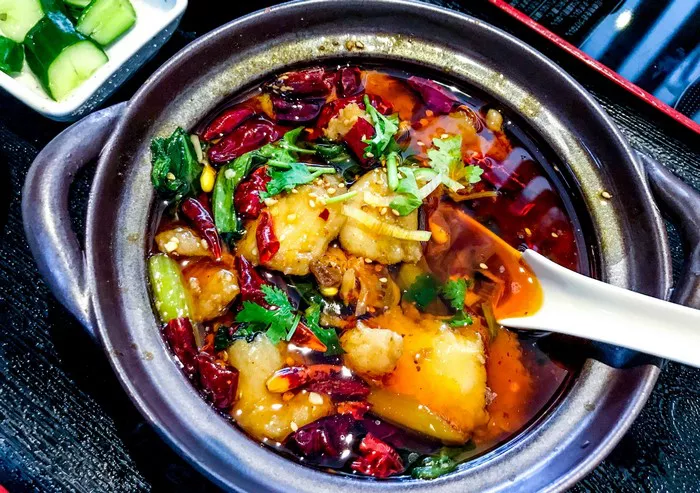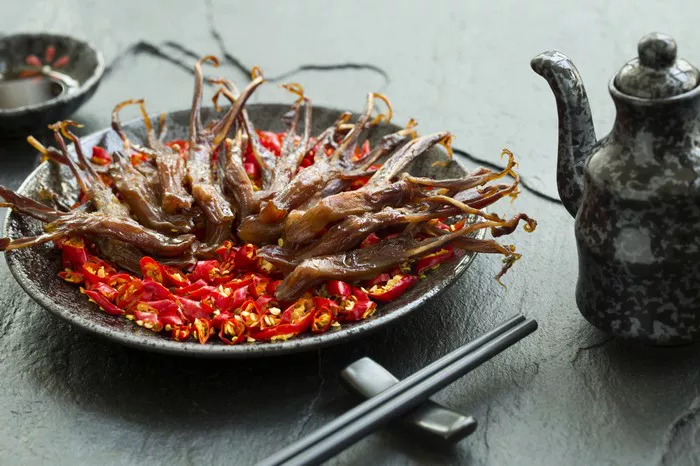Chinese cuisine, renowned for its intricate flavors, diverse ingredients, and centuries-old traditions, has captivated palates around the globe. A key element that defines the essence of Chinese cooking is the choice of cooking oil. With a history spanning thousands of years, Chinese cuisine has evolved alongside various culinary oils that contribute not only to taste but also to texture and health benefits. Among the array of oils available, one stands out as the cornerstone of Chinese cooking: peanut oil. This article delves into the significance of peanut oil in Chinese culinary culture, exploring its history, qualities, and its irreplaceable role in creating authentic Chinese flavors.
The Historical Journey of Peanut Oil
Peanut oil, extracted from the legume’s kernels, has been an integral part of Chinese culinary history for centuries. Its use dates back to ancient China, where peanuts were cultivated for their oil content. Initially, peanut oil was primarily employed for medicinal purposes and as a lamp fuel due to its high smoke point. However, its versatility and appealing flavor soon made it a favorite in Chinese kitchens.
1. A Symbol of Culinary Heritage
Peanut oil holds a special place in Chinese cuisine as a symbol of tradition and cultural heritage. Its long-standing presence in the culinary landscape has solidified its status as a staple ingredient, used in both classic dishes and contemporary creations. From northern to southern China, peanut oil’s ubiquity is a testament to its irreplaceable role in achieving the desired flavors and textures that define Chinese cooking.
2. The Flavor Alchemist
One of the most captivating aspects of peanut oil lies in its ability to enhance the flavor profile of Chinese dishes. When heated, peanut oil imparts a distinct nutty aroma that infuses the dish, elevating its taste to new heights. This aromatic quality adds depth and complexity to a wide range of dishes, from stir-fries to deep-fried delights. The harmonious marriage of peanut oil’s flavor with various ingredients is a hallmark of Chinese culinary expertise.
3. Balancing Act: Smoke Point and Versatility
Chinese cooking methods often involve high-heat techniques like stir-frying and deep-frying. The smoke point of an oil, which is the temperature at which it starts to break down and produce smoke, is crucial in achieving these cooking techniques. Peanut oil’s relatively high smoke point makes it an ideal choice for these methods, as it can withstand the heat without compromising the integrity of the dish. Its versatility extends to other applications as well, such as drizzling over cold dishes or infusing into sauces.
4. Texture and Mouthfeel
In Chinese cuisine, texture is as vital as taste. The right oil can significantly impact the mouthfeel of a dish, contributing to its overall appeal. Peanut oil’s viscosity and consistency create a silky and satisfying mouthfeel, enhancing the dining experience. Whether it’s the crispness of a perfectly fried spring roll or the velvety finish of a stir-fried vegetable medley, peanut oil plays a crucial role in achieving the desired textures.
Health Considerations and Benefits
1. The Nutritional Profile
As much as flavor and texture are paramount in Chinese cuisine, health consciousness is also becoming increasingly important. Peanut oil’s nutritional profile aligns well with modern dietary preferences, making it a preferred choice for health-conscious cooks.
Peanut oil is a rich source of monounsaturated fats, which are considered heart-healthy fats. These fats have been linked to a reduced risk of heart disease and improved cholesterol levels. Additionally, peanut oil contains vitamin E, an antioxidant that supports skin health and protects cells from damage. Its nutrient composition, combined with its culinary attributes, makes it a well-rounded option for those seeking a balance between taste and health.
2. Allergy Awareness
While peanut oil is a popular choice in Chinese cooking, it’s essential to be aware of potential allergenic risks, particularly for individuals with peanut allergies. Highly refined peanut oil, often used in commercial cooking, is generally considered safe for most people with peanut allergies. This is because the refining process removes the proteins responsible for triggering allergic reactions. However, those with severe allergies should exercise caution and consult with healthcare professionals before consuming peanut oil.
Cultural Insights and Culinary Traditions
1. Embracing Diversity
China’s vast and diverse culinary landscape is a reflection of its multicultural history. With eight major regional cuisines and countless local specialties, the use of peanut oil is not limited to a single style of cooking. From the fiery flavors of Sichuan cuisine to the delicate dim sum of Cantonese cuisine, peanut oil’s versatility seamlessly integrates into various regional dishes while preserving their unique characteristics.
2. A Bond Between Generations
The passing down of culinary traditions from one generation to another is a cherished practice in Chinese culture. Peanut oil’s enduring presence in Chinese kitchens fosters a sense of continuity and connection. Learning to cook with peanut oil becomes a bridge between older and younger generations, ensuring that the flavors and techniques of Chinese cuisine are perpetuated.
3. Fusion and Adaptation
As Chinese cuisine continues to globalize, the use of peanut oil extends beyond traditional Chinese dishes. Fusion cuisine that marries Chinese flavors with international ingredients often incorporates peanut oil for its ability to harmonize diverse tastes. From peanut-sesame noodles to peanut-studded desserts, this oil transcends cultural boundaries while retaining its distinct identity.
Conclusion
Peanut oil’s remarkable journey through Chinese culinary history encapsulates the essence of flavor, tradition, and adaptability. Its distinct nutty aroma, high smoke point, and nutritional benefits make it an indispensable element in Chinese cooking. From its origins as a medicinal oil to its status as a flavor enhancer, peanut oil has woven itself into the fabric of Chinese culinary heritage. As Chinese cuisine continues to evolve and captivate global taste buds, the choice of peanut oil remains a testament to the enduring significance of authenticity, flavor, and cultural connection.


























